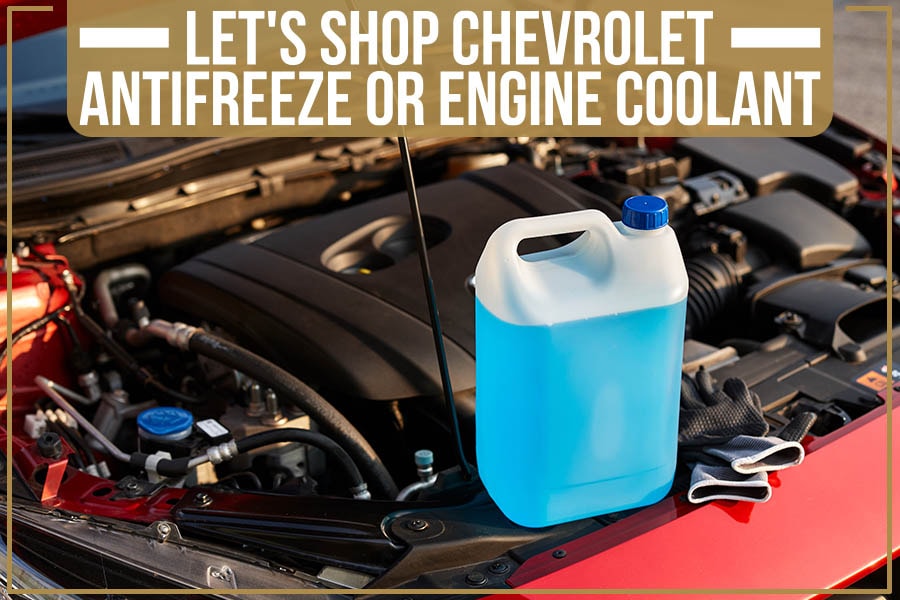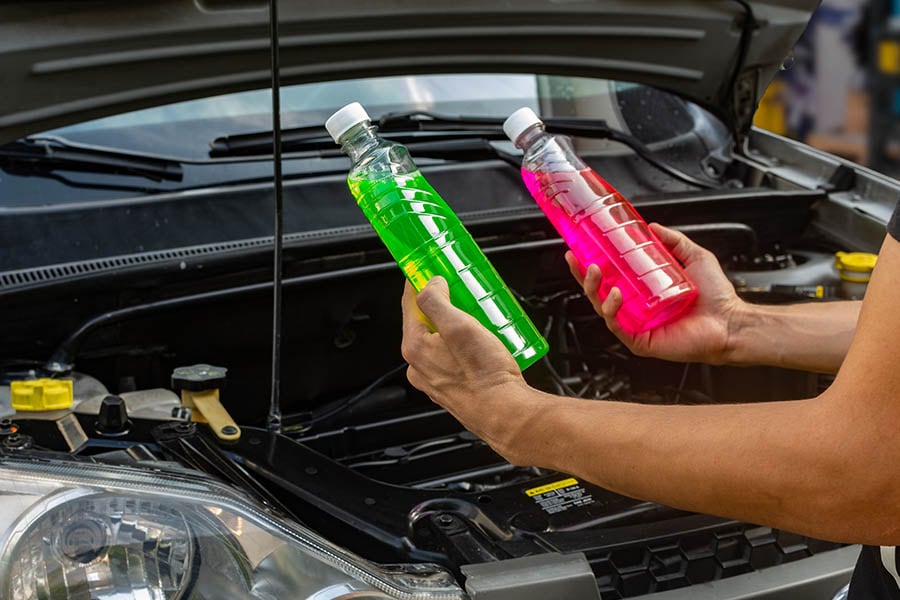
Key Takeaways
· Coolant and antifreeze are often used interchangeably. However, the two are very different.
· Both manage engine temperature. Antifreeze is added to the coolant to ensure it does not freeze under cold temperatures.
· Both radiator fluids ensure the engine does not overheat.
· Overheating engines are a liability that can lead to costly damage for your Chevrolet
· So, fill coolant levels using the car owner's manual or a reliable dealership.
You've decided to buy a Chevrolet. That's great! But before heading to the dealership, you need to answer a question: do you want antifreeze or engine coolant in your car? What's the difference between the two? And which one is right for you?
Coolant helps to keep your engine cool, while antifreeze is a chemical that prevents the engine coolant from freezing in lower temperatures. Both of them are important for managing your engine's temperature.
So, how do you choose between the two? Here's a quick coolant guide to help you decide on your Chevrolet.
Functions and Differences of Coolant and Antifreeze –
The terms “antifreeze” and “engine coolant” are often used interchangeably, but there is a difference between the two. Antifreeze is a chemical added to water that lowers the water’s freezing point and imbues it with anti-corrosive properties.
At the same time, engine coolant is a mixture of water and antifreeze that keeps the engine from overheating. Both coolants and antifreeze are essential for keeping your engine at a manageable temperature, but they serve different purposes. One should never use antifreeze alone in a car’s radiator as the chemical itself can damage the car within 2-5 mins and lead to critical engine failure.
Antifreeze prevents the radiator fluid from freezing, while coolant absorbs heat from the engine and transfers it to the air. If your engine's overheating, it's essential to check the coolant levels.
Lower coolant levels can cause the engine to overheat in high-temperature climates, leading to radiator fluid freezing in colder climates. Both situations are bad for your engine. Try using the correct antifreeze and water mixture in your radiator. The recommended ratio is usually 50/50, but it is essential to check your owner's manual to be sure. Using the wrong ratio can cause your engine to overheat or freeze. If you're ever in doubt, it's always best to take your car to a qualified mechanic to have it checked out. The auto technician will diagnose any issues and ensure your car runs correctly.

Do Low Coolant and Antifreeze Levels Cause Engines to Overheat? –
It's no secret that engine overheating is one of the most common causes of car breakdowns. But many drivers don't realize that their engine gets too hot because they're low on coolant or antifreeze. If you don't replace your coolant, it won't be long before your engine starts to overheat. This can happen on hot days or when you're driving around town. If you notice your car's temperature gauge creeping into the red, it's time to pull over and give your engine a break.
Overheating can cause significant damage to the engine itself, as well as to other parts of your car. The most common type of damage from overheating is to the piston rings. The piston rings are what seal the combustion chamber from the crankcase, and slight damage to the rings can cause oil and coolant to mix, which can damage your engine. Another type of damage that can be caused by overheating is to the head gasket. The gasket seals the engine block from the cylinder head, and if it becomes damaged, it can cause the engine to seize, leading to costly repairs.
Signs Your Engine is Overheating
Your engine is designed to operate at a certain temperature range, which can lead to serious problems if it gets too hot. There are a few clear signs of engine overheating, and you need to take action.
1. The Temperature Gauge is in the Red -
This one is pretty obvious. If the temperature gauge on the car's dashboard is reading flashing red, that means your engine is overheating. Pull over to a side as soon as possible and turn off the engine.
2. Steam or Smoke Coming from Under the Hood –
If you see steam or smoke emerge from beneath the car's hood. It means the coolant's vaporized. It is a sign that all's not right with your engine.
3. Warning Light on the Dash –
A warning light blinks in many cars when the engine is overheating. You should pull over and turn off the engine if you see this light.
4. Engine Overheating Sounds –
If you hear knocking or pinging, that is definitely a sign that you need to pull over and turn off the engine.
5. Car Won't Start –
Try restarting the car after it cools down for a few minutes.
If you notice these signs, you should pull over and turn off the engine as soon as possible. It's also a good idea to check coolant levels and ensure it is full. If the coolant level is low, that could be the reason the engine is overheating.
Also, Read – How Do You Know it is Time to Replace Your Air Filter?
How to Fill Coolant Levels? - A Step-By-Step Process -
To check coolant levels, open the hood of your car and locate the coolant reservoir. The coolant reservoir is usually a plastic tank with a screw-on or twist-off cap. If you can't find the coolant reservoir, consult your car's owner's manual. Once you've found the coolant reservoir, remove the cap and check the coolant’s level inside. Add more coolant until it reaches the "full" line on the side of the reservoir. It's important to use the correct type of coolant for your car. Check your owner's manual or ask a Chevrolet dealer about which coolant to use.
If the coolant happens to be murky, filled with rusty bits, or just seems off-color, you might have to go for a coolant flush. These are required every couple of years to ensure the coolant is not contaminated enough to start corroding the radiator hoses.
Book For Auto Service At Your Trusted Auto Dealership!
Chevrolet vehicles are known for their durability and quality. However, even the best cars need routine maintenance to run smoothly. That’s why we encourage our customers to schedule a service with Bill Holt Chevrolet, serving Ellijay, GA, as soon as possible if they experience engine overheating issues.
Our team of experts will take care of your car and have it running like new again in no time. Don’t let an overheated engine ruin your day or your vacation. Schedule a service today!
